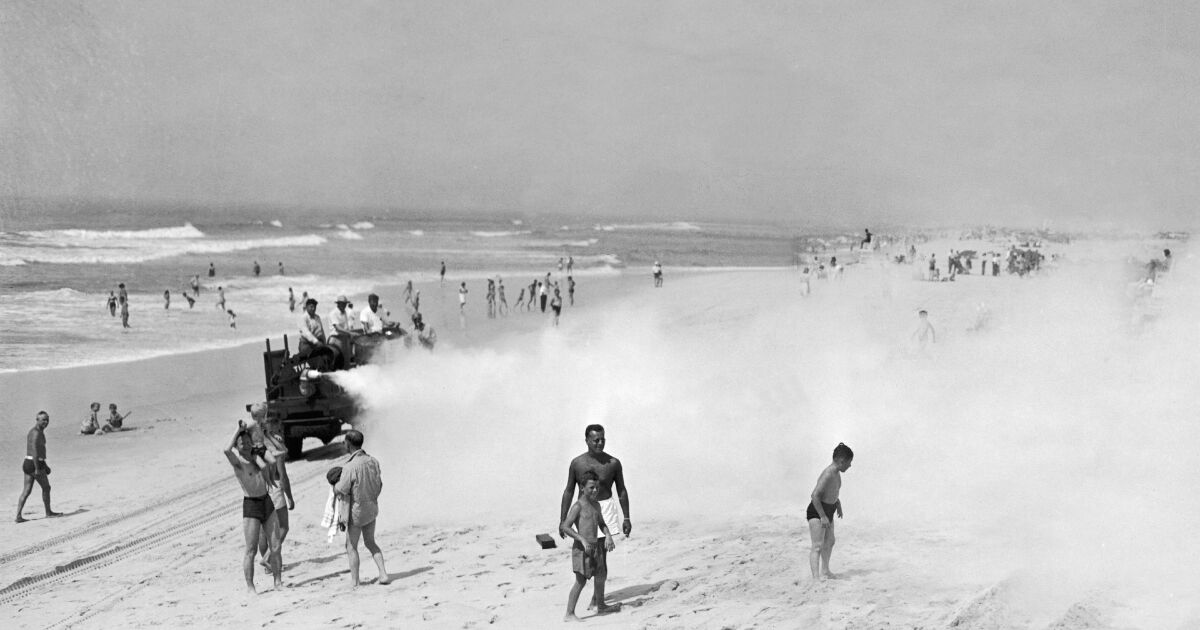
Then their daughters, who had been exposed in the womb.
Now, a team of toxicologists, molecular biologists and epidemiologists at UC Davis and the Public Health Institute in Oakland have confirmed for the first time that granddaughters of women who were exposed to DDT during pregnancy also suffer from significant health threats: Higher rates of obesity and menstrual periods that start before age 11.Both factors, scientists say, may put these young women at greater risk of breast cancer — as well as high blood pressure, diabetes and other diseases.“This is further evidence that not only is a pregnant woman and her baby vulnerable to the chemicals that she’s exposed to — but so is her future grandchild,†said Barbara Cohn, director of the Public Health Institute’s Child Health and Development Studies, a multigenerational research project in California that has followed more than 15,000 pregnant women and their families since 1959.Significant amounts of DDT-related compounds are still accumulating in Southern California dolphins, and a recent study linked the presence of these persistent chemicals to an aggressive cancer in sea lions.
"By the time the daughters got pregnant with the granddaughters, that was long after DDT had been banned — and yet they were carrying within them the seeds of these problems.â€.
More than 60 years ago, in the heyday of DDT, a team of scientists had the foresight to start collecting blood samples from more than 15,000 pregnant women at the Kaiser Permanente hospital in Oakland.They kept in touch with the women’s daughters, who had been exposed to DDT in the womb, and then with their granddaughters.
They found, after years of research, that women heavily exposed to DDT during childhood are five times as likely to develop breast cancer, and that a mother’s DDT exposure during pregnancy, or immediately after birth, is linked to an increased risk of breast cancer for their daughter?In this most recent study, published Wednesday in the journal Cancer Epidemiology, Biomarkers & Prevention, the research team found that the risk of obesity in the granddaughters — who are now in their 20s and 30s — was two to three times greater than women whose grandmothers had little DDT in their blood during pregnancy?These granddaughters were also twice as likely to have much earlier menstrual periods — another indicator of increased health risks later in life.
Since a female is born with all her eggs, a granddaughter is technically also exposed to DDT if her mother was exposed in the womb.
“Even though we banned that stuff more than 40 years ago, people now walking the Earth — the granddaughters of those who were pregnant — were exposed,†Cohn said.She wonders if the increasing rates of childhood cancer, diabetes and other health problems affecting young people today are also somehow connected to these chemicals of the past.
Scientists found that sea lions exposed to DDT and other chemicals in the ocean are more likely to die from a herpes-induced cancer?Blumberg now specializes in studying how chemicals in the environment can affect our genes and predispose people to obesity, which affects about 42% of Americans today.That’s why the multigenerational Bay Area study, which he’s not affiliated with, is so important, he said.“If we’re lucky, that cohort [of Bay Area women] will continue through four, five, six generations,†he said, “and we’ll really learn something about the effects of what happened in the past on the future.â€.Akilah Shahid said she was shocked, yet fascinated, to learn that she was in the third generation of a major study on how chemicals in the environment could be affecting women.Her grandmother alone has fought cancer three times.
Rosanna Xia is an environment reporter for the Los Angeles TimesMore From the Los Angeles Timesfish: Tensions rise again in California-Oregon border area water battle